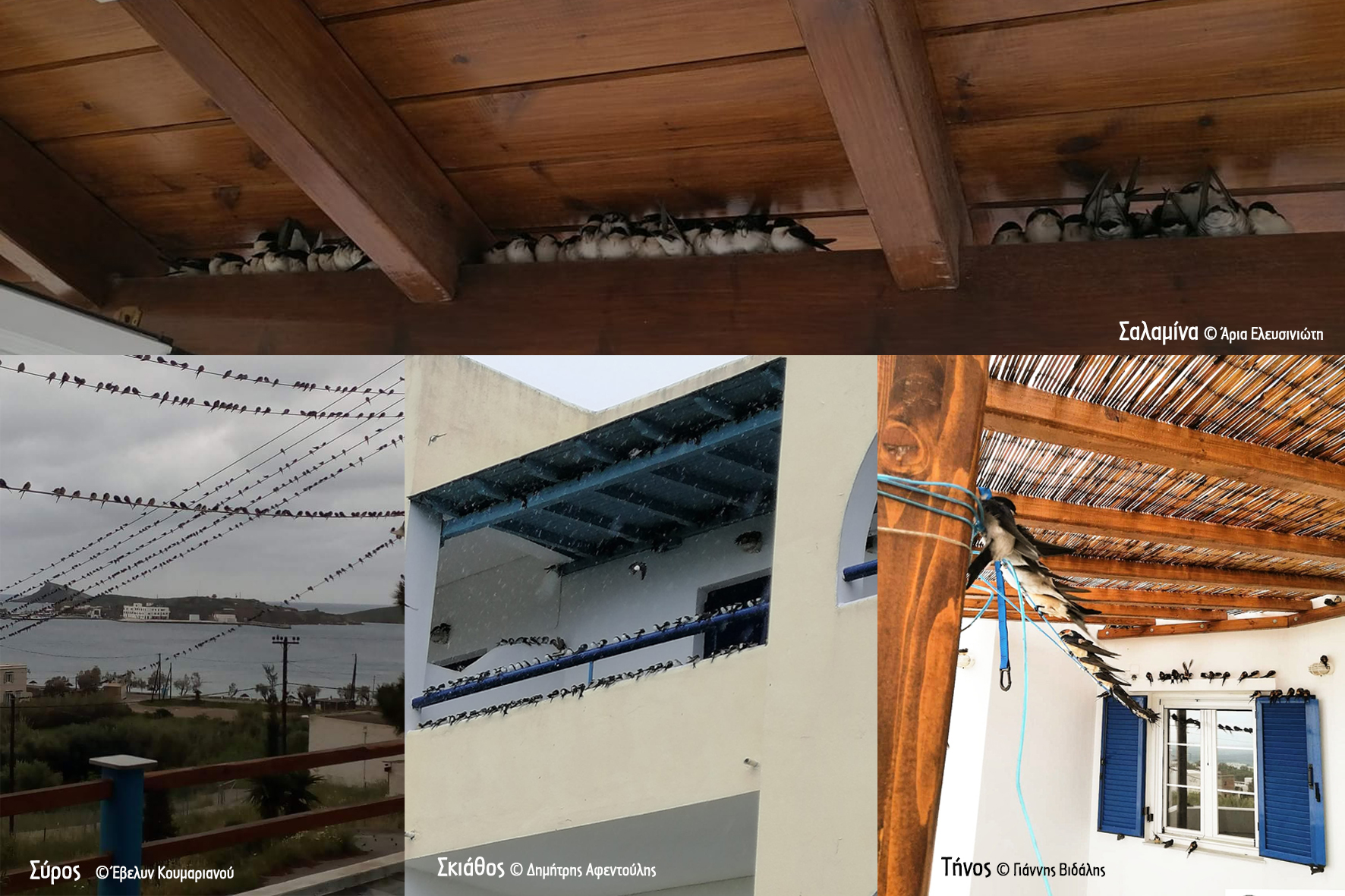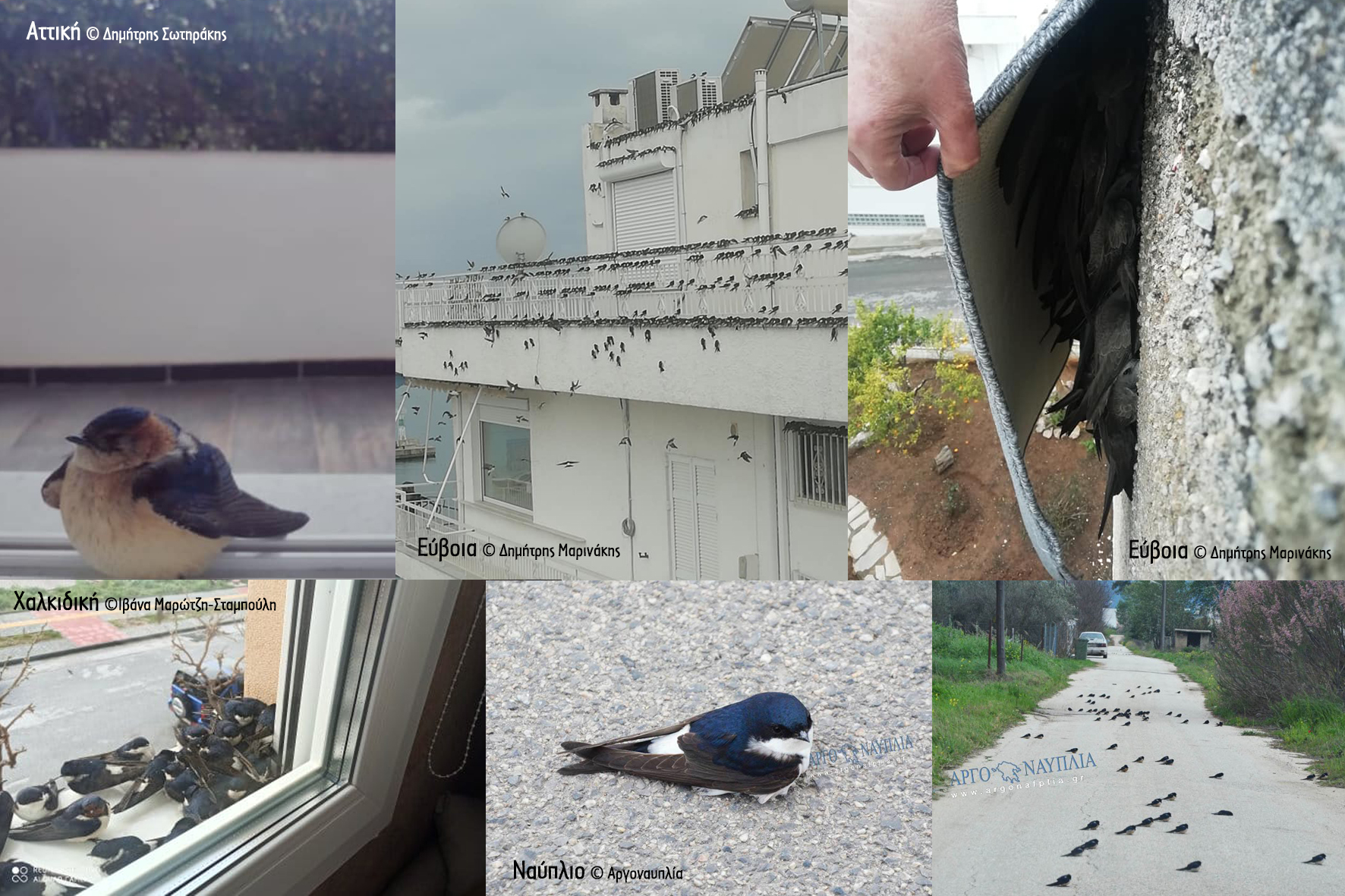April 5th to 6th was a disastrous night for migratory birds. Very strong northerly winds and low temperatures followed several days of adverse spring weather and persistent rain that had already exhausted the traveling birds, after their journey of thousands of kilometers over the Sahara desert and the Mediterranean Sea. All this, with no insects flying, dispersed by the strong wind.
Southerly winds pushed massive migratory flocks to Northern Africa, where they confronted the northern wind streams of the Aegean Sea (around Cyclades Islands), forcing them to turn towards the eastern coast of mainland Greece in order to find a place to rest. That turn affected particularly species that feed from flying insects, especially swallows, martins and swifts, but also flycatchers and other passerines.

On April 6th, the morning light revealed a shocking sight: tens of thousands of birds, chilly and exhausted, were unable to move. Swallows and martins had to rest on the ground, on the blacktop, on balconies, on rooftops and any other surface available. Swifts –a purely airborne species that can not rest on the ground or on a wire– found a temporary shelter by grabbing a wall or by hiding in scuppers or air ducts. Flycatchers filled parks and gardens in Athens and other cities. All this happened throughout Eastern Greece, from southernmost Crete to northernmost Macedonia.
Migratory birds are adapted to adverse conditions and certain losses are expected during their journey. However, this specific weather combination was unprecedented and pushed entire populations to their limits. If we take into account all the hardships that human activity brings about during their journey –habitat loss, desertification, illegal killing etc.– these losses could prove devastating.
Thousands of citizens were alarmed and flooded social media with messages, pointing out the condition of the birds and asking for directions. Tens of hundreds of exhausted birds died due to exhaustion, run over by cars or killed by cats. The overall situation is gradually improving, nevertheless some protective measures must be taken during the next few days:
- Do not approach the birds and do not disturb them in any way. They are exhausted and any further energy loss could be fatal. If they rest on your balcony, do not come out. Do not take photos in close range.
- Do not try to feed them. Swallows, martins, swifts, flycatchers and similar species feed on flying insects and do not accept seeds, breadcrumbs or any similar feed.
- Drivers must be very careful. Many birds rest on the blacktop. It’s a real pity for a bird to travel thousands of kilometers over sea and desert only to find death under a wheel.
- Protect the birds from domesticated cats, until they recover and find the strength to fly towards a safer site.
- If a bird is in need of first aid, contact immediately a wildlife care and rehabiolitation centre in order to receive proper instructions:
Alkioni Wildlife Care and Protection Association (Paros island):
https://www.aboutparos.gr/en/paros/alkioni.php
ANIMA (Athens):
https://www.wild-anima.gr/en
Action for Wildlife (Thessaloniki, Northern Greece):
https://www.drasi-agriazoi.gr/index.php/en/

For more information:
Hellenic Ornithological Society/BirdLife Greece: +30 210 8228704, info[at]ornithologiki.gr


